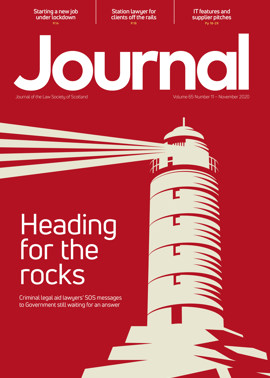The Word of Gold: Count us out

A concern for potential investors is that lawyers are not proven business leaders. Clients frustrated with private-practice lawyers often accuse them of lacking commercial nous. Because most lawyers spend much of their time peering at small print, big-picture concerns can go unnoticed. Few managing partners know their firm’s profit per billable hour, even though that is the main product law firms sell. Cost control is often an afterthought, trailing far behind revenue generation.” Thus The Economist in August 2008, in an article entitled, “Should you buy shares in a law firm?”
The jury is out. Shares in listed law firms have declined steeply this year, as they have responded to the pandemic. But it’s said this may be more a consequence of their novelty, than a verdict on the quality of their leaders, or a guide to the future. When Facebook listed in 2012, its share price had a torrid time as the market worked out exactly what to make of it. In the last 12 months its value has doubled.
In any event, The Economist expresses a widely held view that lawyers and entrepreneurship don’t mix. When businesses look for business advice, in general, they turn to their accountants, consultants, bankers, or peers they trust, before their lawyers. For one thing, we are not credited with the right expertise.
For another, we might suck our teeth and advise caution. Nothing enrages a fired-up entrepreneur more than a firewall.
In 2017, the issue was researched by Professor Todd Harrison of Chicago Law School. In an article for Harvard Business Review, he concluded that CEOs with legal training were associated with higher firm value, but only in high-growth companies and those likely to attract large amounts of litigation. Otherwise, the effect of CEOs with legal training on firm value was negative. Companies in, say, pharmaceuticals and aviation performed better when run by lawyer CEOs, all else being equal, but in less regulated and risky sectors they performed worse.
Lawyer on board. (Not)
Currently, fewer than 10% of FTSE chief executives have any legal training. In comparison, 55% have a background in finance, 14% in technology, and 15% in hospitality. Most of the rest come from marketing and engineering. I once interviewed the general counsel of a household name Scottish company, and asked him to define his role. “My role,” he replied, “is to make sure my board don’t look like plonkers.” There you have it: “Keep us out of trouble but as for running any part of the business, no thanks.” Incidentally, only 5% of FTSE 100 CEOs are women, 2% in the FTSE 250, so in that dubious sense, the “man of business” (an old-time sobriquet for a Scots lawyer) is thriving. One survey notes that there are more Steves currently in the top job than women.
It has been said that what defines an entrepreneur is the willingness to risk everything to make the impossible happen, and a fanatical belief that it will. On that basis, it may be said that lawyers not being entrepreneurs is just fine. But an entrepreneur is not only a high-wire innovator. They are simply someone who “organises, manages, and assumes the risks of a business or enterprise”. In that sense, the profession needs quality in depth. There are outstanding law firm leaders, but across the profession the picture is patchy. Partners find themselves promoted to leadership positions because they are regarded as the best lawyer, or the biggest fee earner, without proper consideration of whether they have the strategic, management and personal skills to do the job. Business skills are not always valued as they should be.
Clients will not seek commercial advice from lawyers if they do not think they understand and respect their world. But here lies an opportunity. Lawyers are constantly searching for ways to differentiate themselves. The lawyer who invests in high-quality business education, who becomes fluent in the language of strategy and management, who is able to see, as The Economist puts it, the big picture, will have an edge over “small print” competitors, be they other firms, or internal rivals, as they claw their way up the greasy pole. It may not be an easy choice, nor for everyone, but in more ways than one it holds out the possibility of a rich career.
Regulars
Perspectives
Features
Briefings
- Civil court: keeping justice on the rails
- Employment: Time for a redundancy refresher
- Family: Watch your step with behaviour-based divorce
- Human rights: Inner House message in privacy group chat
- Pensions: The future – the regulator's blueprint
- Scottish Solicitors' Discipline Tribunal
- Crofting law reform: time to act
- In-house, online and in demand
In practice
- Paralegals: 10 years of recognition
- Ask Ash: Too busy, but still insecure
- Property pitfalls: problematic but preventable
- The Word of Gold: Count us out
- Prepare for the tax due date
- The Eternal Optimist: Help to turn the corner
- Appreciation: Ross Paton
- Appreciation: Claire Reilly (Robertson)
- Tenancies succession reminder






